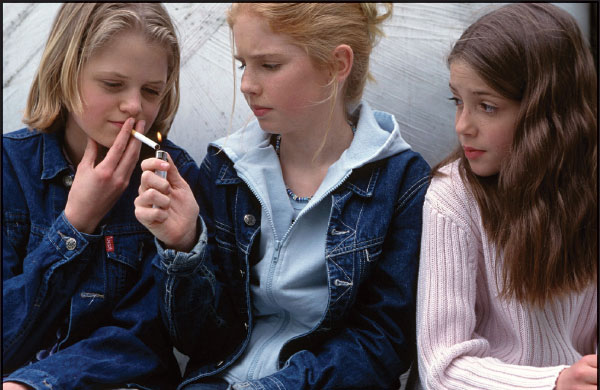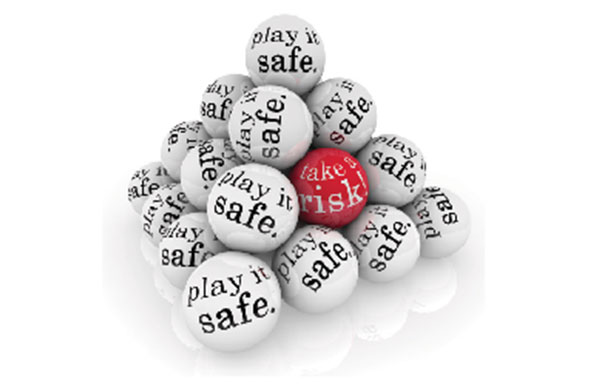 Bullying. It may be a common problem for children both in school and at camp, but it’s still heartbreaking every time I see it happen. Take Joseph, for instance. Joseph refuses to go to Yeshivah. He lies in bed, complaining of an imaginary stomach ache. His mother, of course, knows what the real problem is. Joseph can’t bear to face Sammy, a classmate who is making her son miserable. Ever since the school year began, he’s been teasing and taunting Joseph at any given opportunity. And while Joseph handled it bravely for as long as he could, his resistance finally wore down. He refuses to face his tormentor again.
Bullying. It may be a common problem for children both in school and at camp, but it’s still heartbreaking every time I see it happen. Take Joseph, for instance. Joseph refuses to go to Yeshivah. He lies in bed, complaining of an imaginary stomach ache. His mother, of course, knows what the real problem is. Joseph can’t bear to face Sammy, a classmate who is making her son miserable. Ever since the school year began, he’s been teasing and taunting Joseph at any given opportunity. And while Joseph handled it bravely for as long as he could, his resistance finally wore down. He refuses to face his tormentor again.
What makes kids bully their peers, and how do we deal with the situation when it affects our children? These are questions that parents ask me quite often, and believe me when I say I truly sympathize with their plight. It’s sad to hear how heartless and cruel some children can be to others. It’s also sad to see how profoundly it affects the self- esteem of the victim-child.
A number of studies have been conducted on the dynamics of bullying and its effect on the children involved. Some of the results may be surprising. In a recent study held at the University of Zurich, it was discovered that there is a connection between bullying or victim-of-bullying behavior and negative family relationships. This means that children involved in bullying are more likely to have ‘issues’ at home. The study cites “insecure family attachment or overprotective parenting styles” as possible risk factors. Other family issues associated with bullying are “lack of warmth or closeness at home, a focus on power and high agression, and the use of physical disciplining.” (Parents, take heart. These studies are meant only to point out certain trends. Just because your child is a victim of bullying, it doesn’t mean that you’re running a dysfunctional household.)
Another study, conducted in the Netherlands, indicates that there are more boy bullies than girl bullies. However, both boys and girls are equally represented as victims. The study also states that, when they’re bullying, “boys use more physical aggression and direct bullying,” whereas girl bullies resort to “name calling and social exclusion.” They conclude that “Hitting and threatening are types of bullying which are common to boys in particular. Gossiping and the taking of personal belongings are common for girls.”
Many experienced educators will nod when they read this because they’ve seen the syndrome so often they can probably write their own studies on bullying behavior. That’s why they’re also your first line of defense. If your child is exhibiting the classic symptoms of a bully victim, don’t be embarrassed. Intervene on his or her behalf. Make an appointment to meet with the teacher or principal. They are on your side. They’ve seen this syndrome so often, they usually will know how to handle it. They have the power to effectively isolate the bully or at least to keep watch over him so as to minimize his powers. They can make subtle changes in the classroom patterns (change of seat or of recess partners) that can be very helpful. They can enlist the aid of other students to help reduce the effectiveness of the bully’s taunts. Don’t think that calling the teacher is a sign of weakness or caving in. The teacher is your ally, and you need all the allies you can get to fight the bully in this battle.
Some children are singled out by one particular bully for no apparent reason. Other children are consistently designated as the victim, whether they are in camp, in school, or in any social situation. These children need to be helped. There’s something about their dress, their demeanor, or their behavior that is drawing out this negative attention. A professional educator or social worker can work with them, drawing out reserves of self-confidence or building self-esteem so that they are better equipped to face the world. An educator who is familiar with the dynamics of today’s generation can make an independent evaluation of what exactly is going wrong. We all know that it’s not fair to be superficial when judging others, but the truth is that a new hairstyle, better grooming, losing a few pounds or a new wardrobe can also do wonders in helping children blend in better with the rest of their peers.
Now let’s analyze the bully. Let’s not let him off the hook too easily. He’s got ‘issues’ too. Too many of us tend to smile or shrug when we are confronted with a bully in our class or in our family. After all, we think to ourselves, these kids are going to be okay, aren’t they? They are outgoing and assertive. They even have a certain aura of ‘power’ and ‘authority’ which may serve them well when they are older. I’ve seen parents look upon their bully-child with a sense of pride. Believe me when I tell you there’s nothing to be proud of.
Our society has conditioned us to consider the ‘wimp’ as the lowest common denominator on the social stratosphere. We’ll do anything, even raise a bully if we have to, to avoid this. The Torah, of course, teaches us a completely different set of values. The character traits that we should truly aspire to are quiet finesse. We have to teach our children and our students that we respect the youngster with outstanding derech eretz (respectful, thoughtful and civilized behavior), even if he is a little quiet and reserved. We have to look to him as a role model.
If you’re still not convinced, consider the latest scientific studies. They point out that a teen who bullies his peers may have dificulties later in life. Bullies are more likely than others to be involved in a variety of delinquent behaviors including crime, violence, harrassment, threatening and excessive anger. They may be popular while they’re in school (after all, everyone wants the bully to be their friend), but often have difficulty maintaining relationships with others as an adult. Finally, bullies were found to have higher levels of aggressiveness and lower levels of academic performance than most of their peers.
So having a bully in your life is nothing to be proud of. And just as the parents of the victim should seek guidance from professionals, so should the bully’s parents. Perhaps there’s some underlying reason for the child’s aggressive and abusive behavior. Is there a self-esteem issue that is being masked by playing tough? These questions should be evaluated and the causes should be established. Reach out for help now, while the children are still relatively young and the problems are easier to deal with. And remember. Just as Joseph is suffering, you can be sure that Sammy, the bully, is suffering in some way as well.
Bullying is not a way of life and should not be encouraged. We should work on ‘saving’ the bully from himself just as we try to save the victim from the bully.
______________
Mrs. Rifka Schonfeld founded and directs the widely acclaimed educational program, SOS, servicing all grade levels in secular as well as Hebrew studies. She is a highly regarded educator, having served the community for close to 30 years. She has extensive expertise in the field of social skills training and focuses on working with the whole child.



